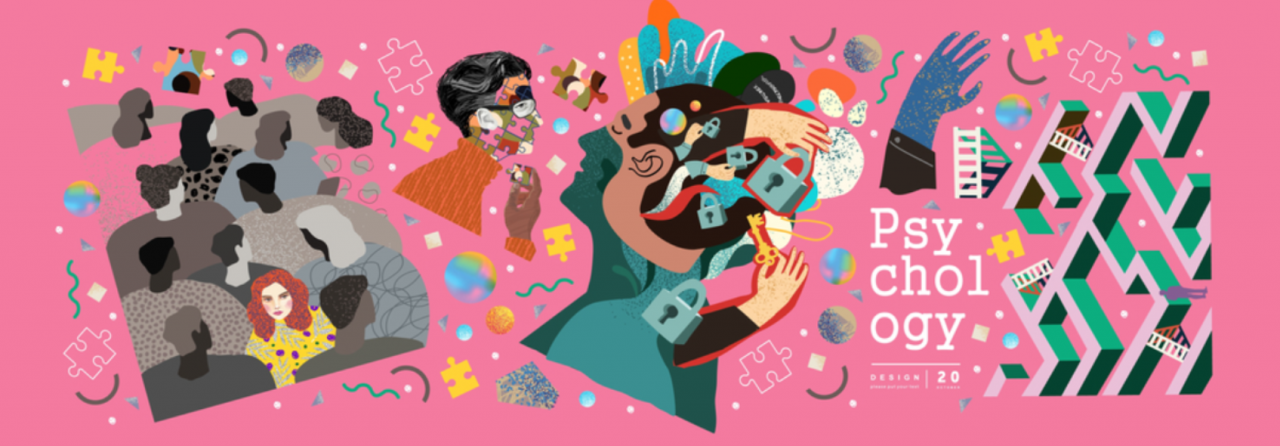Curriculum Statement of Intent
KS4
The psychology curriculum is designed to develop an enquiring and inquisitive mind to engage in the modern world as a global citizen. Students will also develop their understanding of the human mind and behaviour in a scientific framework, which means that students will be equipped to successfully live in the contemporary world. For example, topics such as Health Psychology are particularly pertinent in a post-pandemic world to allow us to consider a variety of theories and explanations for differences in health-related behaviour.
Students will begin their psychology journey with an introduction to key concepts and definitions which can be used to explain human behaviour. This initial knowledge will utilise key concepts already learned in subjects such as citizenship, Religious Education and many more core topics and then be consolidated and built upon by looking at the different approaches which are used in the world of psychology. By considering the various psychological approaches, students will also be able to analyse the theories of different psychologists and critically evaluate the varying explanations of human behaviour, skills that will be essential in higher education and training. This knowledge and the skills taught at the start of the course will then equip students to conduct their own psychological research – another important and transferrable skill for further education and employment. It will equip students with the ability to investigate real life phenomena in an empirical manner and continually develop skills that can be used in higher education, the world of work and beyond.
Ever-relevant, students will explore mental health issues, developing a sense of sensitivity and empathy and creating excellent citizens able to function in modern society and support those around them. There are opportunities to build on personal experiences and cultural capital through developing a greater understanding of mental health issues through the study of psychopathology. Studying psychopathology will grow an ability to engage with a wide range of people with better understanding and compassion.

Useful websites for revision and additional support:
Online textbook via Teams
Hodder Revision Guide
Collins Revision Guide
Psychology library available in 1062 for wider reading
Psychboost – Mini videos which explain and recap the key topics and concept in Psychology. There are also A level videos if you want to challenge yourself!
BBC Future Psychology — Recent Psychology news and articles to keep you up to date. Reading around the subject will also help exposing you to key words used in the field.
Brainscape—Online flashcards and interactive flashcards to help you revise.

Useful websites for revision and additional support:
Online textbook via Teams
Hodder Revision Guide
Collins Revision Guide
Psychology library available in 1062 for wider reading
Psychboost—Mini videos which explain and recap the key topics and concept in Psychology. There are also A level videos if you want to challenge yourself!
BBC Future Psychology — Recent Psychology news and articles to keep you up to date. Reading around the subject will also help exposing you to key words used in the field.
Brainscape—Online flashcards and interactive flashcards to help you revise.
KS4
GCSE Psychology
Course Provider: AQA
Paper 1: Cognition and Behaviour (50%) Memory, Research Methods, Perception and Development
Paper 2: Social context and behaviour (50%) Social Influence, The Brain and Neuropsychology, Language, thought and communication,
KS5
Although Psychology is a new and refreshing subject at Key Stage 5, the multidisciplinary nature means that we aim to build on existing knowledge and skills from the subjects studied in Key Stage 4 such as Science, Citizenship and English. The curriculum allows for so much more than preparing for an exam or assignment and embeds topical discussions on British Values, with links to other curriculum areas such as elements within Sociology, Science, Business and many more. As so many careers involve working with others, psychology is a subject with the unique position of offering insight into the human mind and human interactions. This will place psychology students in a privileged position to self- evaluate and understand the behaviour of others in future careers.
The curriculum intends to challenge, motivate and inspire a life-long interest in learning whilst aiming to be accessible to meet the needs of all of its learners. The lessons are sequenced in a logical format to develop comprehension of the fundamentals of psychology and the key terms, approaches and concepts used, before diving deeper into Psychology itself and critically evaluating psychological research. Students will be given opportunities to debate and put forward your opinions and consider the findings of research and how it relates to the behaviours and actions of individuals in society.
Through a mixture of exam-style assessments, assignments with differing activities and in-class formative tests, there will be opportunities to shine and demonstrate learning in a supportive yet challenging environment. Over time, students will develop an ability to write in a sophisticated manner. This will happen as initially assessments will look at questions which are knowledge based. This will then progress to questions which assess an ability to apply knowledge to real world scenarios and then answer questions which allow students to demonstrate their ability to evaluate psychological concepts and theories. The lessons are planned with wide learning styles in mind, using multi-media approaches, group work and student-led activities, underpinned by teacher expertise and in-depth marking to allow for the best academic outcomes.
Our Applied Psychology curriculum is so much more than a subject specification. It is underpinned by the intent to develop enthusiastic, ambitious, tolerant and resourceful adults who will make effective contributions to society. It aims to support individual needs in meeting individual end-points alongside encouraging the love of learning and the removal of barriers to success regardless of ability.
KS5
Year 12
Pearson BTEC Level 3 National Extended Certificate in Applied Psychology
- Psychological Approaches and Applications (External examination – 1.5 hours)
- Health Psychology (External examination – 2 hours)
- Conducting Psychological Research (Internal unit – coursework)
- Introduction to Psychopathology (Internal unit – coursework)


Useful websites for revision and additional support:
Destinations
Most students attend university after this course whilst others will complete an apprenticeship. Career destinations include psychiatry, counselling, the criminal justice system, the social work sector, education, healthcare.

